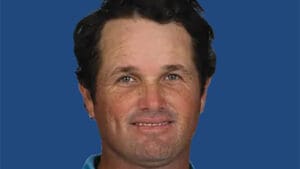Stuart Deane’s journey shows how discipline and focus can carry across every part of life. He grew up in Brisbane, Australia, where sports quickly became his training ground for success.
While studying at Redeemer Lutheran College, he pushed himself in both athletics and golf, eventually representing the State of Queensland in both. Competing at that level gave him lessons in patience, preparation, and resilience—qualities that would later define his business career.
After graduating in 1988, Stuart shifted his focus from sports to real estate. What started as a career path soon grew into a calling. Over time, he built his own brokerage, TDT Realtors, where he now works as both owner and active realtor. He applies the same structure and strategy he once used in competition to running his business. For Stuart Deane, growth has always been about more than sales—it’s about listening, adapting, and steadily improving.
He credits much of his productivity to habits built early in life. Stuart sets three priorities each morning, works in short bursts of focus, and takes time to reset when needed. These practices keep him consistent in an industry that demands flexibility.
Looking back, Stuart sees success not as a finish line but as the result of small daily choices. From the sports fields of Queensland to the neighborhoods he now serves, his story is one of steady progress, purposeful work, and the belief that real achievement comes from persistence and care.
A Conversation on Success with Stuart Deane
How do you define success?
Success, for me, isn’t one big achievement. It’s not a trophy, a title, or even owning a business. It’s about showing up every day and following through. When I represented Queensland in athletics and golf, the medals and competitions were great, but the real success was the discipline of training—rain or shine, tired or not. That same mindset applies to business. It’s not one big win, it’s how consistent you can be over time.
What role did your early life in sports play in shaping your idea of success?
Sports taught me to see progress as small steps. I remember preparing for track meets as a teenager at Redeemer Lutheran College. My coach would always say, “Don’t think about the finish line—just focus on the next stride.” That stuck with me. When I later transitioned into real estate, I used the same thinking. You don’t sell a house by chasing the sale; you sell it by listening, preparing, and handling one detail at a time.
What does a successful day look like for you now?
It starts before sunrise. I still wake up early, a habit from training days. I take a walk, coffee in hand, and let the quiet help me organize my thoughts. Then I write down three non-negotiable tasks. If I get those done, I consider the day a success, no matter how many unexpected things come up. It keeps me from chasing too many things at once.
What’s a failure that shaped your understanding of success?
Early in my real estate career, I expanded too fast. I brought on more agents than I had time to mentor, and service quality dropped. It was humbling. I scaled back, rebuilt with more training, and grew slowly. The failure taught me that success isn’t speed. It’s building at the pace you can lead. That lesson has stuck with me.
What’s one belief you hold about success that others might disagree with?
I believe golf is a team sport. Most people think of it as the loneliest game—you, your clubs, and the course. But my best rounds always came with people around me: a coach who noticed a swing flaw, a competitor who pushed me harder, or even a friend who kept me relaxed. To me, success works the same way. It looks personal from the outside, but it’s never achieved alone.
How do you stay productive when things feel overwhelming?
I go hit golf balls. The act of swinging over and over clears my head. It’s repetitive, almost meditative. By the time I’ve gone through a bucket, the stress has lifted and the problem feels smaller. Success isn’t about always charging ahead—it’s also knowing when to reset.
What’s one small habit that’s made a big difference in your success?
Writing by hand. It sounds old-fashioned, but I carry a notebook everywhere. Jotting things down slows my brain just enough to filter what matters. I’ve noticed I remember more, and I act more intentionally. Apps are convenient, but a pen and page sharpen my focus.
Can you share an example of when listening made a difference in your career?
I once worked with a client who spent most of our conversation talking about his dog. At first, I thought he was just making small talk. But listening closely, I realized the dog was his priority—he needed a safe yard and outdoor space. That shaped the search, and he ended up with a property that truly fit his life. To me, success came not from convincing him, but from hearing what he wasn’t directly asking.
What advice would you give your younger self about success?
Don’t rush to arrive. As a teenager, every competition felt like the end of the world. I thought success was about getting there first. Looking back, I’d tell myself to slow down and appreciate the process—the training, the learning, the steady build. Success is less about arriving and more about becoming.
What’s your view on long-term success?
It’s not about doing more. It’s about doing what matters, consistently. From athletics to real estate, I’ve found success is the accumulation of daily habits—showing up early, focusing on a few priorities, listening carefully, and being willing to adjust when things go wrong. That doesn’t make headlines, but it’s what lasts.
Read more:
What Does Success Look Like To You? – Stuart Deane
